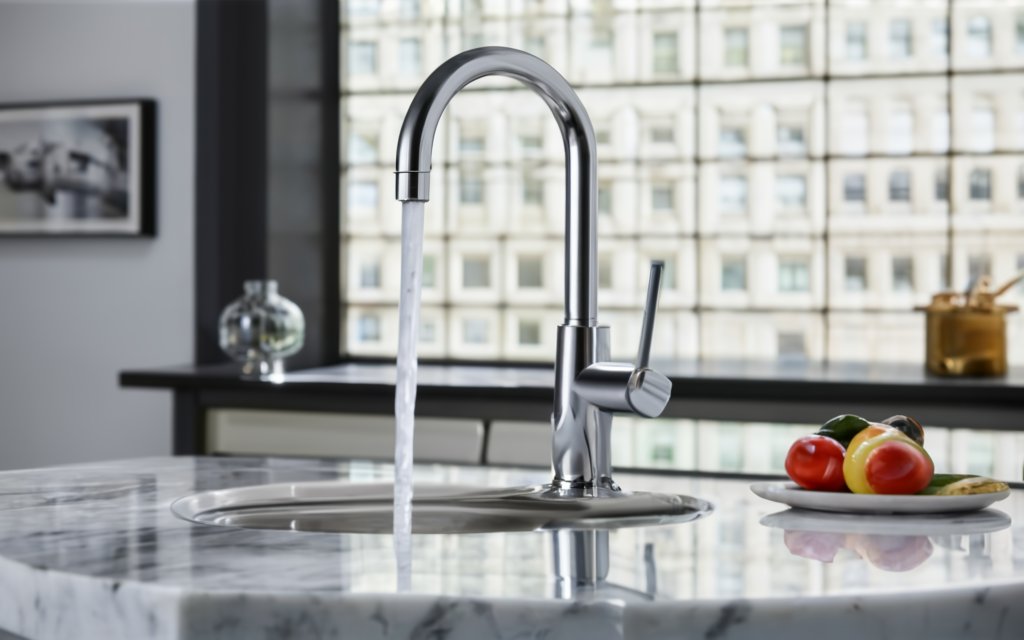Hard water is a common issue faced by many households across the globe. It’s characterized by high mineral content, particularly calcium and magnesium, which can cause a range of problems from scaling in pipes to dry skin and dull hair. Fortunately, the solution lies in water filters designed specifically for hard water.
In this comprehensive guide, we’ll delve into everything you need to know about water filters for hard water, ensuring you make an informed decision to improve the quality of your home’s water supply.
Understanding Hard Water
What is Hard Water?
Hard water is water that contains high levels of dissolved minerals, primarily calcium and magnesium. These minerals are picked up as water moves through soil and rock, entering your home’s water supply. While hard water isn’t harmful to your health, it can cause a range of issues in your home.
Common Problems Caused by Hard Water
- Scale Buildup: Mineral deposits can accumulate in pipes, appliances, and fixtures, reducing their efficiency and lifespan.
- Skin and Hair Issues: Hard water can leave skin feeling dry and itchy, and hair looking dull and lifeless.
- Laundry Problems: Clothes washed in hard water may feel rough and wear out more quickly.
- Dishware and Glassware: Spots and film on dishes and glasses are common complaints from those with hard water.
Why You Need a Water Filter for Hard Water
Investing in a water filter specifically designed for hard water can alleviate these issues, providing numerous benefits:
- Improved Appliance Lifespan: Reducing scale buildup helps appliances run more efficiently and last longer.
- Better Skin and Hair: Softer water can improve the feel and appearance of your skin and hair.
- Enhanced Cleaning Efficiency: Softened water makes cleaning more effective, reducing soap scum and spots.
- Healthier Water: Removing excess minerals can improve the taste and quality of your drinking water.
Types of Water Filters for Hard Water
1. Water Softeners
Water softeners are the most common solution for hard water. They work by exchanging calcium and magnesium ions with sodium or potassium ions, effectively reducing the hardness of the water. There are two main types of water softeners:
- Salt-Based Water Softeners: Use salt to replace hard minerals.
- Salt-Free Water Softeners: Use a potassium-based process or other technologies to condition water without adding sodium.
2. Reverse Osmosis Systems
Reverse osmosis (RO) systems are highly effective at removing a wide range of contaminants, including minerals that cause hard water. These systems force water through a semipermeable membrane, filtering out impurities and providing clean, soft water.
3. Whole House Water Filters
Whole house water filters are installed at the point where water enters your home, ensuring that all the water you use is treated. These systems can be customized with various filter types, including those that address hard water.
4. Magnetic and Electronic Descalers
These devices use magnetic or electronic fields to alter the properties of hard water minerals, preventing them from forming scale. While they don’t remove minerals, they can reduce scaling issues.
Choosing the Right Water Filter for Your Home
When selecting a water filter for hard water, consider the following factors:
- Water Hardness Level: Test your water to determine its hardness level. This will help you choose the most effective filtration system.
- Household Needs: Consider the size of your household and your water usage patterns.
- Budget: Water filters vary in cost, so it’s important to choose a system that fits your budget while meeting your needs.
- Maintenance Requirements: Some systems require more maintenance than others. Consider how much time and effort you’re willing to invest in upkeep.
Installation and Maintenance Tips
Proper installation and maintenance are crucial for the effectiveness and longevity of your water filter system. Here are some tips to ensure your system operates optimally:
- Professional Installation: For complex systems like whole house filters and RO systems, consider professional installation to ensure everything is set up correctly.
- Regular Maintenance: Follow the manufacturer’s guidelines for maintenance, including filter replacements and system cleaning.
- Monitor Water Quality: Periodically test your water to ensure your system is working effectively and to detect any changes in water quality.
Benefits of Using Water Filters for Hard Water
Using a water filter designed for hard water offers numerous benefits that enhance your daily life:
- Healthier Drinking Water: Improved taste and quality of drinking water.
- Softer Skin and Hair: Reduced dryness and irritation, with softer, shinier hair.
- Efficient Appliances: Longer-lasting appliances with reduced maintenance needs.
- Cleaner Dishes and Laundry: Spot-free dishes and softer, longer-lasting clothing.
Common Myths About Water Filters for Hard Water
There are several misconceptions about water filters for hard water. Let’s debunk some of the most common myths:
- Myth: All Water Filters Remove Hardness: Not all water filters are designed to address hard water. It’s important to choose a filter specifically for hard water.
- Myth: Softened Water is Unhealthy: While softened water contains sodium, the amount is typically low and not harmful to health.
- Myth: Water Filters Are Expensive: While some systems can be costly, there are affordable options available that effectively address hard water issues.
Conclusion
Investing in a water filter for hard water is a smart decision that can significantly improve your quality of life. By understanding the different types of filters available and choosing the right one for your needs, you can enjoy the benefits of cleaner, healthier water. Whether you opt for a traditional water softener, a reverse osmosis system, or another type of filter, addressing hard water issues will lead to a more efficient and comfortable home environment.
